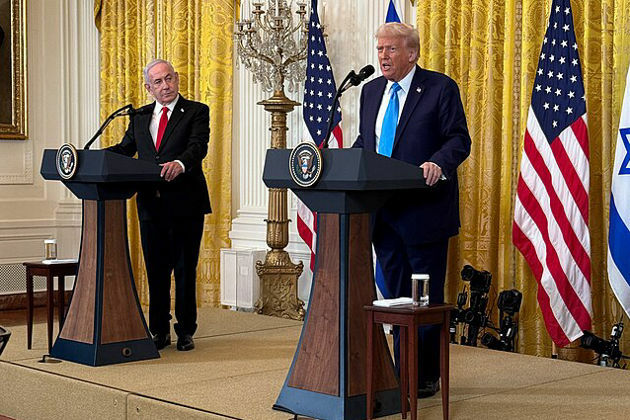Research finds reason behind some countries switching to green energy
ANI
07 Oct 2022, 22:07 GMT+10

Berkeley [US], October 7 (ANI): Following the Russian invasion of Ukraine in the spring of 2022, the price of oil and gas surged, sparking a comparable worldwide energy crisis to the one that occurred in the 1970s. While some nations reacted to the price shock by accelerating the switch to cleaner energy sources like wind, solar, and geothermal, others increased the output of fossil fuels.
A recent study finds the political elements that enable some nations to lead in the adoption of cleaner forms of energy while others lag behind. The study is published this week in the journal Science. The findings provide crucial insights as numerous governments compete to cut greenhouse gas emissions and lessen the catastrophic effects of climate change.
"We are really interested in understanding how national differences mediate the responses of countries to the same kind of energy challenge," said study lead author Jonas Meckling, an associate professor of energy and environmental policy at the University of California, Berkeley. "We found that countries' political institutions shape how much they can absorb costly policies of all kinds, including costly energy policies."The study shows how the design of political institutions can support or obstruct the transition to clean energy by examining how various nations responded to the present energy crisis and the oil crisis of the 1970s. Meckling collaborated on the analysis alongside the study's co-authors, Florence Metz of the University of Twente in the Netherlands, Jared J. Finnegan of University College London, and Phillip Y. Lipscy of the University of Toronto.
Policies that support the switch to cleaner energy technology are frequently expensive in the short term, therefore they may face strong political opposition from stakeholders like businesses and consumers. The study discovered that the nations that were most successful at developing cleaner energy technologies had political structures that helped absorb some of this opposition, either by shielding decision-makers from political pressure or by compensating people and businesses for the additional expenses associated with implementing new technologies.
Meckling used the example of how many nations in continental and northern Europe have developed structures that enable decision-makers to shield themselves from opposition from voters or lobbyists or to appease constituencies impacted by the change. Because of this, many of these nations have had more success covering the costs of switching to a clean energy system, such as investing in more wind power or modernising transmission lines.
The United States, Australia, and Canada, which do not have such institutions, frequently follow market-driven transitions and wait for new technology to become more affordable before implementing them.
"We can expect that countries that can pursue the insulation or compensation path will be early public investors in these costly technologies that we need for decarbonization, such as hydrogen fuel cells and carbon removal technologies," Meckling said. "But once these new technologies become cost competitive in the market, then countries like the U.S. can respond relatively rapidly because they are so sensitive to price signals."Giving regulatory authority to independent organisations that are less susceptible to requests from voters or lobbyists can help protect policymakers from political backlash. A notable example of such a body is the California Air Resources Board (CARB), a mostly independent organisation tasked with carrying out many of California's climate goals. Despite being a state in the United States, California is frequently regarded as a global leader in reducing greenhouse gas emissions, partly because of CARB.
Instead, Germany, the second climate leader in the world, uses compensation to meet its lofty climate objectives. For instance, the Coal Compromise brought together diverse parties to agree on a plan to phase out coal by the year 2038, including environmentalists, coal executives, trade unions, and leaders from coal mining regions. To accomplish this, the nation will boost the employment market in other industries while offering financial support to workers and regional economies that depend on coal.
We seek to demonstrate that political factors, in addition to resource endowments, influence how nations respond to energy crises.
The United States as a whole lacks powerful mechanisms to withstand political resistance to expensive energy policy. Meckling asserted that policymakers can still advance the energy transition by building on the foresight of states like California, concentrating on measures with more evenly distributed costs and less political opposition, such as funding for energy research and development, and paving the way for the market to adopt new technologies once the initial outlay has been paid.
When these clean technologies reach cost parity, "countries like the U.S. that lack these institutions should at least concentrate on reducing impediments," Meckling advised. What they can do is lower the price for market participants. (ANI) Share
Share
 Tweet
Tweet
 Share
Share
 Flip
Flip
 Email
Email
Watch latest videos
Subscribe and Follow
Get a daily dose of Nashville Herald news through our daily email, its complimentary and keeps you fully up to date with world and business news as well.
News RELEASES
Publish news of your business, community or sports group, personnel appointments, major event and more by submitting a news release to Nashville Herald.
More InformationInternational
SectionTragedy in Spain: Diogo Jota and his brother die in car accident
MADRID, Spain: Liverpool footballer Diogo Jota and his younger brother, André Silva, have died in a car accident in Spain. Spanish...
Early heatwave grips Europe, leaving 8 dead and nations on alert
LONDON, U.K.: An unrelenting heatwave sweeping across Europe has pushed early summer temperatures to historic highs, triggering deadly...
U.S. military, China, Russia in Space race
President Donald Trump's plans to build a space-based Golden Dome missile defense shield have drawn immediate criticism from China,...
Trump wins $16 million settlement from Paramount over CBS Harris edit
NEW YORK CITY, New York: Paramount has agreed to pay US$16 million to settle a lawsuit brought by U.S. President Donald Trump over...
British PM faces major party revolt over welfare reforms
LONDON, U.K.: British Prime Minister Keir Starmer won a vote in Parliament this week to move ahead with changes to the country's welfare...
White House meeting between Trump, Netanyahu on July 7
WASHINGTON, D.C.: President Donald Trump will meet Israeli Prime Minister Benjamin Netanyahu at the White House on Monday. President...
Business
SectionEngine defect prompts Nissan to recall over 443,000 vehicles
FRANKLIN, Tennessee: Hundreds of thousands of Nissan and Infiniti vehicles are being recalled across the United States due to a potential...
Microsoft trims jobs to manage soaring AI infrastructure costs
REDMOND, Washington: Microsoft is the latest tech giant to announce significant job cuts, as the financial strain of building next-generation...
Stocks worldwide struggle to make ground Friday with Wall Street closed
LONDON UK - U.S. stock markets were closed on Friday for Independence Day. Global Forex Markets Wrap Up Friday with Greeback Comeback...
Nvidia briefly tops Apple’s record in AI-fueled stock rally
SANTA CLARA, California: Nvidia came within a whisker of making financial history on July 3, briefly surpassing Apple's all-time market...
ICE raids leave crops rotting in California, farmers fear collapse
SACRAMENTO, California: California's multibillion-dollar farms are facing a growing crisis—not from drought or pests, but from a sudden...
Trump signals progress on India Trade, criticizes Japan stance
WASHINGTON, D.C.: President Donald Trump says the United States could soon reach a trade deal with India. He believes this deal would...













